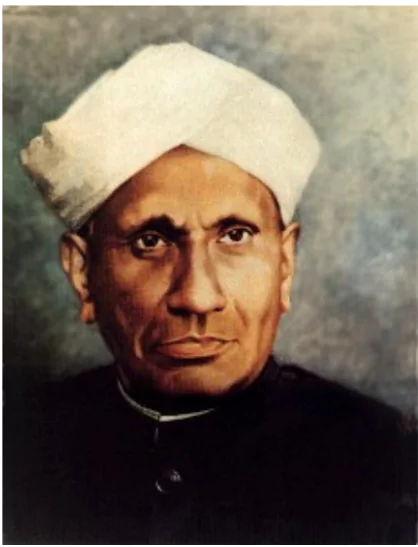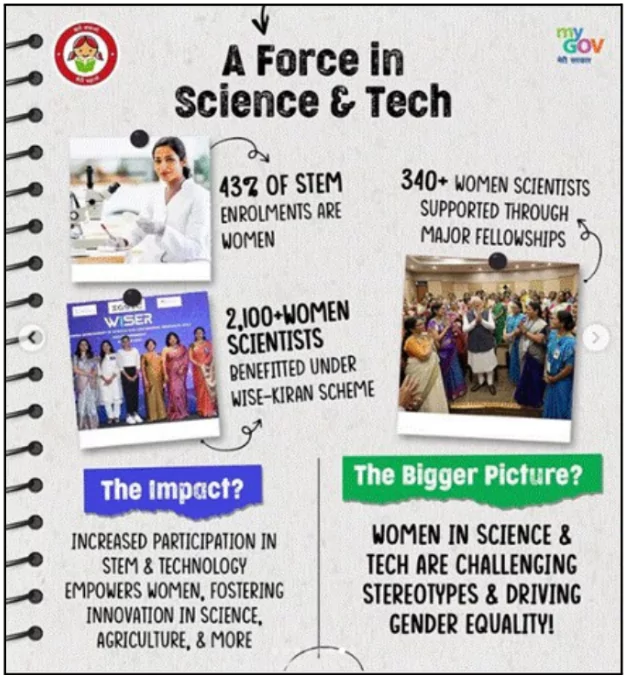India is projected to surpass the United States in the number of scientific publications by 2029, as announced during a National Science Day function on February 28, 2025.
About National Science Day

- National Science Day is celebrated annually on February 28 to commemorate the discovery of the Raman Effect by Sir C.V. Raman in 1928.
- For this breakthrough, he received the Nobel Prize in Physics in 1930.
- The first National Science Day was observed in 1987, promoting scientific awareness and innovation across India.
- Theme for 2025: “Empowering Indian Youth for Global Leadership in Science & Innovation for VIKSIT BHARAT.”
- Objectives of National Science Day Celebration:
- Encourages scientific temper and the application of science in daily life.
- Showcases India’s scientific achievements and technological advancements.
- Promotes STEM education and engages young minds in scientific research.
About Raman Effect
- Raman Effect explains the scattering of light when it interacts with molecules, leading to a change in wavelength.
Modern-Day Applications OF Raman Effect
- Chemical and Material Analysis: Used in Raman Spectroscopy to identify molecular composition in pharmaceuticals, forensics, and nanotechnology.
- Medical Diagnostics: Helps in cancer detection, blood analysis, and early disease identification.
- Astronomy & Space Science: Assists in analyzing planetary atmospheres and detecting extraterrestrial compounds.
- Security & Forensics: Used for explosive detection, counterfeit identification, and forensic investigations.
- Environmental Monitoring: Detects pollutants in air and water, contributing to climate studies and pollution control.
|
India’s Global Position in Science and Technology
- Ranked 39th in the Global Innovation Index 2024.
- 6th in global Intellectual Property (IP) filings, as per WIPO 2024 report.
- Network Readiness Index (NRI) 2024: Improved ranking to 49th, from 79th in 2019.
- Future projection: India to surpass the U.S. in scientific publications by 2029.
Key Scientific Achievements in 2024
- National Quantum Mission (NQM): ₹6003.65 crore investment for research in quantum computing, communication, and materials.
- National Supercomputing Mission (NSM): A total of 33 supercomputers with a combined computing capacity of 32 petaflops have been deployed in the country till November , 2024 under National Supercomputing Mission with a target of 77 PetaFlops using indigenous technology.
- BharatGen Initiative: Development of India’s first multimodal, multilingual Large Language Model (LLM) for AI.
- Geospatial Science Expansion: Spatial Thinking programs in 116 schools, with expansion planned.
- Climate Research: Four new Centres of Excellence for risk mapping of floods and droughts.
Government Initiatives to Boost Scientific Research
Research & Development (R&D) Initiatives
- Anusandhan National Research Foundation (ANRF) 2023: Supports research and young scientists.
- PM Early Career Research Grant (PMECRG): Funding for young researchers.
- EV Mission: Innovation in electric vehicle technology.
- Inclusivity Research Grant (IRG): Supports SC/ST researchers.
Technology & AI Development

- National Mission on Interdisciplinary Cyber-Physical Systems (NM-ICPS):
- Funding of eight startups in quantum computing and AI.
- Establishment of Technology Translation Research Parks (TTRPs).
- Technology Development Board (TDB): ₹220.73 crore funding for innovation-driven startups.
Science Education and Talent Development
- INSPIRE Program: Encouraging young talent in science:
- 34,343 INSPIRE Scholars and 3,363 INSPIRE Fellows supported in 2024.
- Expansion to Class 11 and 12 students in 2025.
- Vigyan Jyoti Program: STEM education for girls, benefiting 29,000+ students across 300 districts.
- WISE-KIRAN Program: Supporting women in research with:
- WISE-PhD & Postdoctoral Fellowships.
- Women’s International Grants (WINGS) for global research exposure.
Budget Allocation for Science and Research
- Department of Science & Technology (DST): Budget increased 926%, from ₹2,777 crore (2013-14) to ₹28,509 crore (2024-25).
- Department of Space (DOS): Grew 139%, from ₹5,615 crore (2013-14) to ₹13,416 crore (2024-25).
![]() 1 Mar 2025
1 Mar 2025


